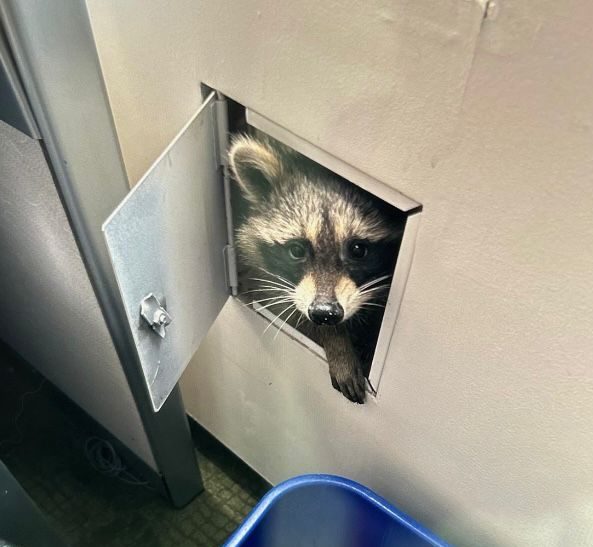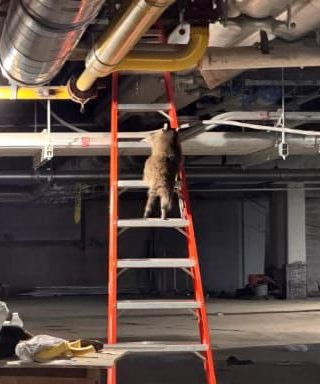
Several raccoons were spotted in the Quinn Administration Building and Campus Center in the past week, in addition to McCormack Hall, as The Mass Media previously reported.
Community members said they had seen the raccoons in the second and fourth floors ceilings of McCormack Hall, in the walls of the Quinn Building, and running between the Quinn Building and the Clark Athletic Center. Michael Kearns, the associate vice chancellor for the UMass Boston Facilities Department, also confirmed that a raccoon knocked out a ceiling tile in Campus Center and that the department is “attempting to trap and remove it from campus.”
Millicent Snow, a UMass Boston student, said, “I think it’s a huge health and safety concern. It’s something that should be dealt with — it’s campus’ responsibility to deal with it.”
Other students said the sightings were “not surprising.”
The Classified Staff Union also posted an image Sept. 6 of a raccoon in McCormack Hall to their Instagram page, @classifiedstaffunion. “Our furry friends in the ceiling seem to think this is their break room! Time to call for some safe and humane relocation,” the caption stated.
Kearns said that the department is aware of the issue and working to enact a “comprehensive strategy” for removing the raccoons.

“In the past, it’s been one-off sightings. Since it’s been continuing, we’ve increased our efforts tenfold,” he said, adding that they set live traps in the areas where the raccoons are concentrated.
The Massachusetts Division of Fisheries and Wildlife suggests that while raccoons generally prefer hollowed-out trees as nesting sites, they may also use chimneys, attics and similar spaces to make their dens. Their website states that cubs are weaned by late summer and “become more independent by late fall, but continue to den with the family group, especially during severe winter weather,” before permanently leaving the following spring.
The Division of Fisheries and Wildlife also identifies raccoons as the primary vector for rabies in Massachusetts. According to their website, rabies can be identified by lethargy, uncoordinated movement or aggressive behavior. “Any raccoon that bites or scratches a person or pet should be treated as a potentially rabid animal,” the website states.
Raccoons can also carry canine distemper virus, which can mimic rabies but is not transmissible to humans, and raccoon roundworm, among other diseases. Raccoon roundworm is carried in raccoon feces and can be very dangerous — the roundworm eggs become airborne when dry and can easily infect humans. Raccoon roundworm can cause liver enlargement, loss of muscle control, blindness and even comas, according to the CDC.
Kearns encouraged the community to report any of raccoons they see or hear, directing people to “notify facilities and to stay away from the animals for safety reasons.” The UMass Boston Facilities Department can be contacted at facilities@umb.edu or at (617) 287-5450 from 7 a.m. to 6:30 p.m. on weekdays.

